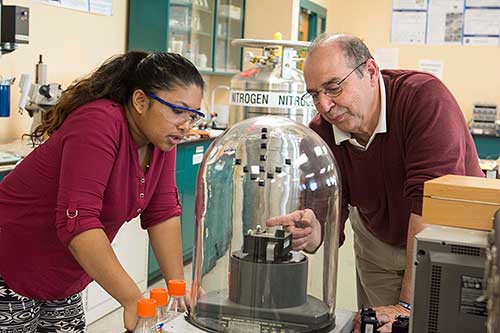
Doug Reed, assistant professor of philosophy and creator of the popular undergraduate course “Philosophy 110G: Love and Sex,” is thinking about breakups.
Of course, a discussion of love naturally includes a conversation about breakups, and there’s value in exploring love gone bad, Reed says. “The course begins by looking at four different philosophical accounts of love and trying to understand those. Then we use those discussions to start thinking about philosophical methodology; that is, understanding what a view is claiming,” he explains.
In the course of those discussions, students tend to focus on what successful love looks like—as in, mutual attraction, recognition of each others’ value, etc., Reed says. And for some students the happily-ever-after ending is a seductive proposition. But while the notion of a forever love is powerful—and the fuel that fires a billion-dollar-a-year romance industry—it doesn’t jibe with most experience, Reed says. “I think we can all agree that there’s much to be learned about love from when it goes bad or when it doesn’t work out. And if this is a good philosophical theory of love, it had better be able to explain how breaking up is possible.”
Such are the considerations of a course concerned with love and sex and all that issues from that; ethics, monogamy, cheating, and consent are all topics taken up by Reed’s students in the course of the semester. Courses tackling global and universal topics such as those in “Philosophy 110G: Love and Sex” carry the special designation of being grand challenge courses. Covering a broad range of topics and disciplines, grand challenge courses, the centerpiece of General Education at URI, concern real-world, complex issues and problems. Students are encouraged to think deeply and creatively in courses covering topics ranging from sustainability, and human evolution to social entrepreneurship, humanitarian engineering, and small-scale renewable energy sources, just to name a few.
Reed teaches two sessions of his love and sex philosophy course each semester and there’s usually a wait list. Last fall, he taught his first 75-person class. The experience has been an education of sorts for him as well.
“Teaching gives me an opportunity to hear different perspectives. I’m always hearing things that make me think or rethink what my position is,” he says.
“And that generates new sets of questions to ask.”
—Marybeth Reilly-McGreen

